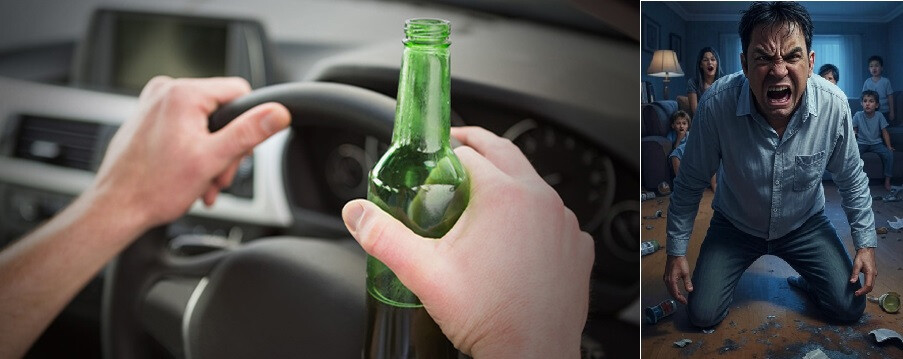
A pervasive notion in South Korea is that it's a society lenient towards alcohol. It's often seen as a catalyst for fun at gatherings or a comforting friend after a tough day. However, this alcohol culture casts a bitter, dark shadow. Drunk driving and alcohol-fueled assaults, in particular, are severe crimes that threaten the safety and order of society, yet many still dismiss them as mere "mistakes" or "something that could happen." How did South Korea become a haven for drunk drivers and assailants?
Widespread Leniency and Lenient Punishments
A primary reason is the prevalent culture of leniency, which leads to weak punishments. Unlike other crimes, a common excuse for alcohol-related offenses is "because I drank." Sentences are often reduced because the act was deemed impulsive due to intoxication, and in some cases, claims of "not remembering due to alcohol" even serve as an acquittal. Such rulings fail to instill caution in offenders, inflict frustration on victims, and dull society's overall awareness of alcohol-related crimes, perpetuating a vicious cycle.
While there have been recent efforts to strengthen penalties for drunk driving, such as the implementation of the Yoon Chang-ho Act, some offenders still cleverly evade the law or receive light sentences, raising questions about the law's effectiveness. Similarly, assaults committed while intoxicated are frequently dismissed as mere "drunken bravado," resulting in warnings or minor fines. This lenient treatment effectively sends the wrong message to offenders: "It's okay even if you get caught."
Inadequate Social Safety Nets and Victim Protection
Another issue is the insufficient social safety net for victims of drunk driving or alcohol-fueled assaults. Victims of drunk driving accidents or alcohol-related assaults often suffer not only physical pain but also severe psychological trauma. However, systematic psychological counseling, medical support, and legal assistance for these victims are often lacking, leaving them to suffer in silence. The failure to adequately protect victims inadvertently reduces the accountability of offenders and leads society as a whole to underestimate the severity of alcohol-related crimes.
Deep-Rooted Drinking Culture and Lack of Awareness
Finally, South Korea's deeply ingrained drinking culture and a general lack of awareness play a significant role. In a culture where alcohol is indispensable at company dinners, social gatherings, and family events, there's a widespread tolerance for "making mistakes while drinking." The perception among some that getting "wasted" signifies "having a good time" or "relieving stress" further dilutes the sense of alarm regarding serious crimes like drunk driving or alcohol-fueled assault. Many fail to recognize that alcohol impairs judgment and self-control, or even worse, use alcohol as an excuse to unleash their violent tendencies.
The Path Forward
To shed its notoriety as a haven for drunk drivers and assailants, South Korea requires multi-faceted efforts. Beyond strengthening legal penalties, consistent and strict enforcement of the law must clearly establish that "alcohol" can never be an excuse. Furthermore, enhancing victim protection and support systems is crucial to help victims fully return to their daily lives and ensure offenders bear full responsibility for their actions.
Ultimately, a nationwide overhaul of public perception regarding alcohol culture is urgently needed. Alcohol should be seen as a tool for enjoyment, not a justification for irresponsible behavior. Only when a societal consensus forms—moving beyond "drink in moderation" to "alcohol-fueled crimes are absolutely unacceptable"—can South Korea truly become a society safe from alcohol-related offenses. We can no longer turn a blind eye to the tragedies overshadowed by alcohol.
[Copyright (c) Global Economic Times. All Rights Reserved.]



























